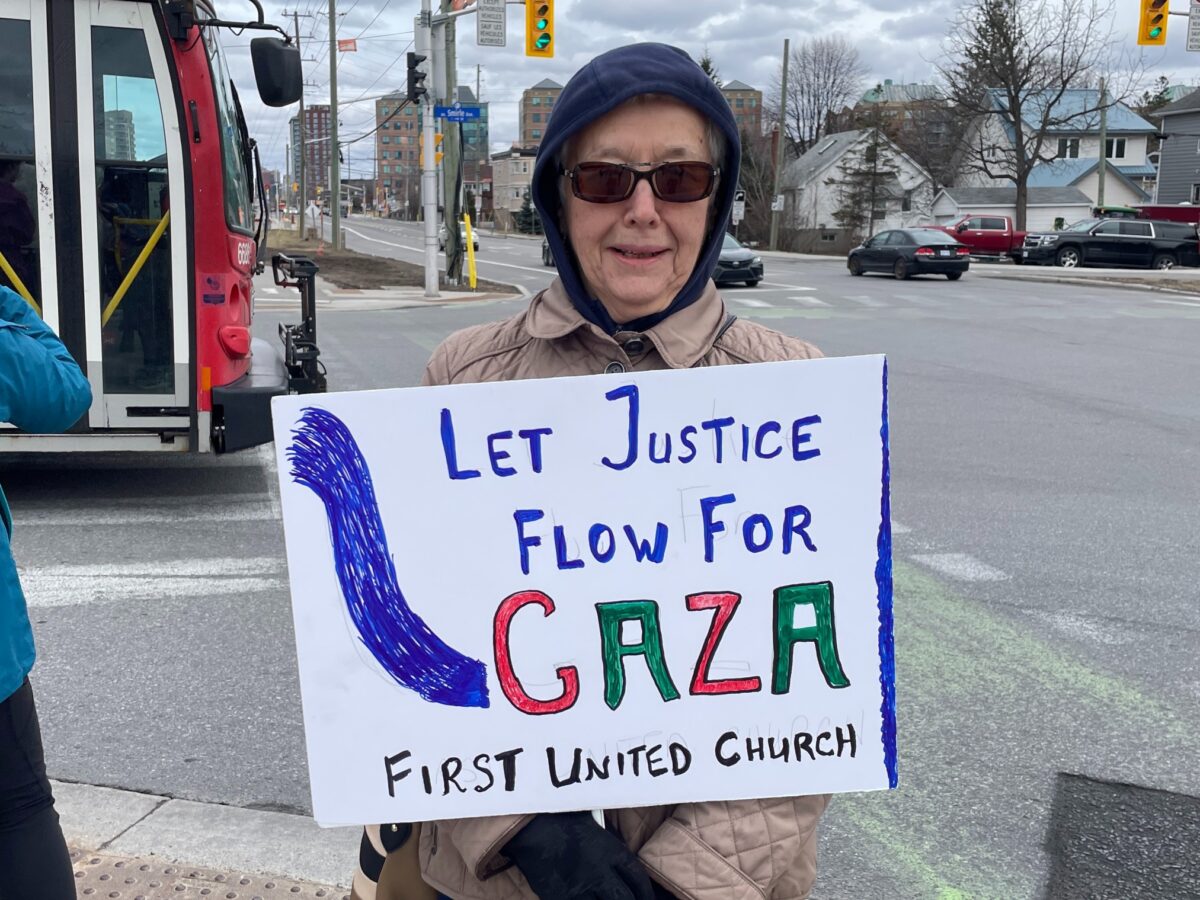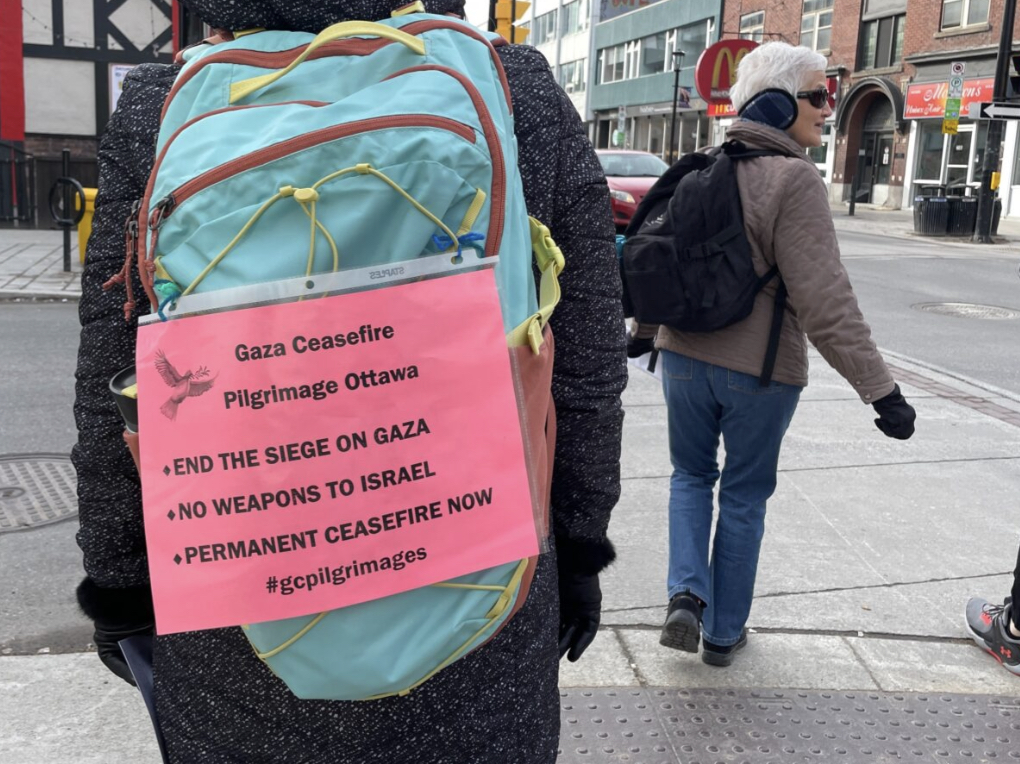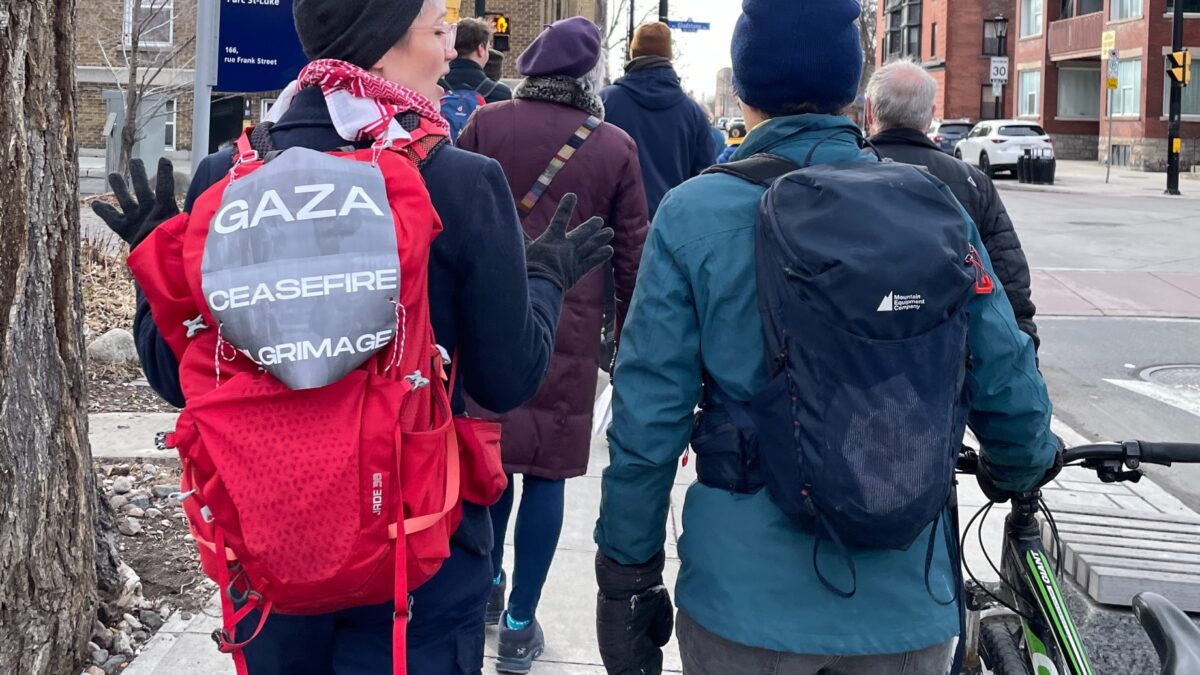More than 30 Christian activists recently took part in a six-and-a-half hour, 15.8-kilometre pilgrimage across central Ottawa to call for a permanent ceasefire in Gaza.
The Ottawa pilgrimage was just one in a series of worldwide treks to advocate for peace in Palestine. During the Christian holy season of Lent, activists in more than 200 cities walked the equivalent length of the Gaza Strip in solidarity with those affected by the war.
A Hamas terror strike on Israel on Oct. 7 left about 1,200 people dead — mostly civilians — and nearly 300 Israelis and foreign nationals taken hostage. Since then, Israel’s counterattack against Hamas has left more than 32,000 people dead in Gaza — the vast majority Palestinian civilians, including more than 12,000 children — from aerial bombardments and ground assaults.
The conflict in Gaza is part of the long-running battle between Israelis and Palestinians that followed the 1948 creation of Israel and the dislocation of thousands of Palestinians.
As opposed to a traditional march or protest, a pilgrimage is a spiritual act, described on the Gaza Ceasefire Pilgrimage’s website as a “prayer with one’s body.” As a spiritual protest, Ottawa’s Christian pilgrimage traded chants for prayer or song.

The Gaza Ceasefire Pilgrimage in Ottawa opted for a shorter trek of just under 16 km, close to half the length of Gaza.
Laurena Nash, who organized Ottawa’s pilgrimage, discovered the growing global movement in February and was immediately interested in an event in Canada’s capital. She said she was hoping someone in Ottawa would organize a pilgrimage so she could join.
With these atrocities we’re seeing, the killing of innocent people, it’s good to remember that we are all humans. We can reach for each other, we can talk to each other, we can hug each other, and we can be as one.
Ahmed Ibrahim, chairman of the Ottawa Muslim Society
“As February crept on, it became apparent that no one was going to,” she said. “So I decided to do it.”
The pilgrimage began at City Hall then attendees began walking towards Lansdowne Park.
The route took the group past Dow’s Lake down to Westgate Mall, then past the Ottawa Muslim Association headquarters — located at the Ottawa Mosque on Northwestern Avenue near Tunney’s Pasture — before returning downtown to pass the Parliament Buildings and finally finishing at City Hall.
At the Ottawa Muslim Association, participants were greeted with water and snacks in a show of solidarity. The sustenance was offered even though many Muslims are fasting during the month of Ramadan.
Ahmed Ibrahim, chairman of the Ottawa Muslim Society, said that the pilgrimage by Ottawa Christians gave him hope.
“With these atrocities we’re seeing, the killing of innocent people, it’s good to remember that we are all humans,” he said. “We can reach for each other, we can talk to each other, we can hug each other, and we can be as one.”
Nash said that she’s been advocating for peace in Palestine for decades. “I was appalled by the events of Oct. 7, but I’ve always been very concerned about serious ongoing injustice and human rights abuses in Palestine,” she said.
Two of the seven planned stops were saved for acts of worship, where the group came together to pray and sing a selection of hymns.

Lawrence Ciccarelli particpated and helped Nash organize the event. He said that his faith pushes him to advocate for the oppressed and suffering.
“I think all of us here feel very strongly that Christ identifies with the marginalized, the suffering, the persecuted,” said Ciccarelli. “And if we’re really serious about our faith, I think we should identify with those suffering in Gaza.”
Nash said the human connection was a vital part of the pilgrimage experience.
“When the world seems so hopeless and has all these political conflicts going on, it’s easy to feel hopeless. It’s important that we give people just the basic opportunity to talk to each other face to face,” she said. “Seeing one another as human beings is going to have to be one of the ways that we get out of this.”




